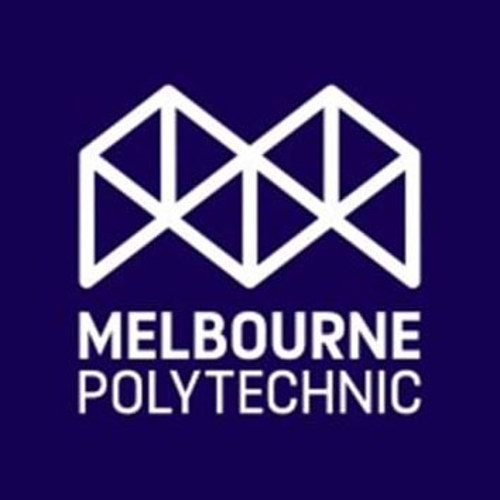Bachelor of Information Technology
Overview
3 years full time / available part time
3 years
February, July, November
February, July, November
Future-proof your career with a Bachelor of Information Technology
As the digital world continues to grow at a rapid pace, there’s never been a better time to study Information Technology.
Whether you’ve always wanted to work with computers or you’re looking for an exciting and flexible career, our experienced academics will ensure you’re up to date with the latest skills.
You will gain hands-on experience creating software for a wide range of applications and develop specialist knowledge in a study area relevant to you.
Endless possibilities with a highly regarded, ACS-accredited degree
Our Bachelor of Information Technology is accredited by ACS.
Melbourne Polytechnic students benefit from our partnership with multinational analytics software provider and the trusted leader in analytics, SAS Institute Inc, as Bachelor of Information Technology students also have the opportunity to receive the globally recognised SAS Academic Specialisation. This is a globally recognised professional industry certification for eligible students on successful completion of specific units.
The course contains 24 units of which 14 are core units (mandatory), 6 are specialisations/majors and 4 are electives. Core units are offered at Preston campus and where demand allows delivery may be at our Prahran campus.
You may choose electives from the Bachelor of Information Technology which are not part of your major. For example if your major is Network Security, you can choose electives from either Software Development or Business Analytics. Alternatively, with negotiation with your head of discipline, you can choose electives from any other higher education course offered at Melbourne Polytechnic.
On graduating, based on the skills you have gained as mapped against the international SFIA standard, the job roles for which you are most suited on graduation are:
- ICT Business Analyst
- Web Developer
- Computer Network and Systems Engineer
- Network Operations Specialist
- Programmer Analyst
- Database Administrator
A detailed specification of the skills gained in this program as they apply the roles listed above are available in the Bachelor of Information Technology SFIA Job Alignment document.
Besides the job roles listed above, there are likely to be other opportunities for immediate employment.
With work experience, depending on the skills that you gain your career may also develop in additional areas such as:
- Network Administrator
- Network Engineer
- Systems Developer
- Database Developer
- Project Manager
- Project Administrator
- ICT Support Officer
- Cybersecurity Analyst
- Cybersecurity Practitioner
Career Pathways
Where will the Bachelor of Information Technology take me?
Careers in IT are diverse. You may find work and a career pathway across industries and across the globe
Study Pathways
Successful completion of this course will enable you to enrol in postgraduate study
Course Details
Class Schedule
Mon - AM and PM
Tue - AM and PM
Wed - AM and PM
Thu - AM and PM
Fri - AM and PM
Sat - AM and PM
Assessment Methods
Projects, report writing, oral presentations, tests and examinations
Units of Study
Credit points are a basic measure of student workload. All subjects are given a credit point value. Most subjects at Melbourne Polytechnic are 12 credit points. A normal full-time annual workload is 96 credit points. The academic year is divided into two main semesters; full-time students usually enrol in 48 credit points each semester, part-time students usually enrol in 24 credit points each semester or less.
| Code | Subject | Elective | Description | Year | Semester |
| BIT351 | Mobile Application Development | Core | This subject introduces the principles and foundations of cross-platform mobile application development. You will learn to develop best practice in creating mobile applications for major mobile platforms (e.g. iOS and Android), by using tools and technologies within existing web and mobile development paradigms. | ||
| BIT111 | PROGRAMMING CONCEPTS | Core | Introduces students to computer programming concepts and demonstrating how computer programming is used to address problems. Students will apply a software development problem solving process which involves developing, testing and documenting computer software which responds to an identified need. | 1 | 1 |
| BIT121 | NETWORK COMMUNICATION CONCEPTS | Core | Provides students with an an overview of the basic principles of a communication system. The subject examines analogue and digital communication protocols and services at the application, network, data link and physical layers including IP and MAC addressing. | 1 | 1 |
| BIT105 | Business Enquiry and Communication | Core | Introduces the principles of academic and business enquiry relevant to the student's discipline area. Students will undertake an investigative process commonly used in undergraduate business studies. This subject includes the development of academic and literacy skills needed to undertake higher education studies with an emphasis on investigations, literacy and presenting information. | 1 | 1 |
| BIT106 | Foundations of software, hardware and cloud computing | Core | This subject introduces computing fundamentals for understanding the principles and use of information technology. This subject introduces computing fundamentals for understanding the principles and use of information technology. It provides an underlying knowledge of computer hardware & software principles for different applications commonly used in computing platforms, including mobile devices. | 1 | 1 |
| BIT108 | FOUNDATIONS OF BUSINESS | Core | This subject provides an introduction to the key management concepts and core business practices. It covers the major functional areas of business, including management, marketing, accounting, finance, economics, and information technology of today’s competitive business world. In addition, it introduces other important concepts such as ethics and social responsibility, forms of ownership, small business and entrepreneurship, and international business, as well as, latest trends in economy, social networking, competition in the global marketplace, and the green movement. | 1 | 2 |
| BIT112 | Mathematics for Information Technology | Core | Introduce or refresh students knowledge of fundamental mathematical and statistical techniques to adequately address business issues and decisions. The mathematics covered in the subject is closely applied to business settings and issues and provides the foundational numeracy skills needed for the course. | 1 | 2 |
| BIT231 | DATABASE SYSTEMS | Core | Provides students with an overview of the development and design of a database system. Students will develop knowledge and skills in relational database management systems and the implementation of database systems in a contemporary business environment. The subject will also provide students with the knowledge and skills to use modern query languages. | 2 | 1 |
| BIT233 | NETWORK DESIGN | Core | This subject develops students understandings of network design techniques in order to analyse existing networks and develop strategies to improve network design and security. Students will be introduced to modelling and design principles for computer networks, including performance evaluation, queuing theory, predicting and measuring network performance, and layered structures of networks. The subject also examines network interface layers, routing algorithms and protocols, network multicasting and wireless LAN technologies as forms of or elements of networks. | 2 | 1 |
| BIT235 | OBJECT ORIENTED PROGRAMMING | Core | This subject provides students with the theoretical knowledge and practical skills to build object oriented programs. The subject focuses on problem solving techniques, testing and documenting software appropriate to object oriented programs. | 2 | 1 |
| BIT230 | System Analysis and Design | Core | This subject introduces you to the basic concepts and application of systems analysis, using common techniques. The subject then builds on your knowledge of the requirements of a computer system. It provides you with the principles of system design and the skills and techniques to carry out computer system design and development. | 2 | 1 |
| BIT236 | Enterprise Resource Planning | Core | This subject introduces the principles and foundations of modern enterprise resource planning (ERP) systems. ERP systems continue to grow in importance in business today. Students will learn to effectively combine an organisation's numerous functions into one comprehensive, integrated system with the latest trends and updates in ERP. | 2 | 1 |
| BIT241 | PROFESSIONAL IT PRACTICE AND ETHICS | Core | This subject develops students judgement and decision making as an information and communication technology professional. Students will develop critical awareness of students responsibilities as an ICT professional across a range of social, legal and ethical issues in a range of settings. Students will be introduced to and be able to apply the codes and standards that regulate the profession. The significance of maintaining the currency of students' professional knowledge through ongoing professional learning and membership of professional associations is also a goal of this subject. | 2 | 2 |
| BIT242 | IT PROJECT MANAGEMENT | Core | This subject enables students to undertake IT project management. This includes developing strategies and methods for managing the design, implementation and lifecycle management of computing system projects and for assuring the quality outcomes. | 2 | 2 |
| BIT243 | NETWORK SECURITY | Core | This subject develops students' knowledge and experience of network security to deal with complex issues and apply sophisticated responses to securing networks. Students will gain understanding in the areas of encryption techniques, security threats, intrusion detection and standard security policies within business. | 2 | 2 |
| BIT244 | IT AND BUSINESS CRIME | Core | This subject examines real-world examples of IT and business crime case studies and how corporations manage such breaches. By developing responses to simulated business crime students will gain an understanding of how these crimes affect the local and global economy and how to mitigate risk against these crimes. | 2 | 2 |
| BIT245 | WEB DEVELOPMENT | Core | This subject explores web based technology and the models used in e-business and e-commerce. Students will build and evaluate websites. | 2 | 2 |
| BIT246 | OBJECT ORIENTED RAD | Core | This subject provides students with the knowledge and practical skills to develop advanced programs in a rapid development environment. Students will focus on advance problem solving techniques using current architecture and frameworks. | 2 | 2 |
| BIT352 | SYSTEM IMPLEMENTATION AND SERVICE MANAGEMENT | Core | This subject provides students with the knowledge and skills to contribute to the successful implementation, testing and on-going management of an information system. The subject will focus on extending system design into systems implementation and service management. | 3 | 1 |
| BIT371 | CAPSTONE EXPERIENCE 1 | Core | The capstone experience consist of two 12 credit point subjects delivered in third year. The subjects can be taken concurrently or together. This is the first subject of the capstone experience providing students with planning, scoping and problem defining in real-world or simulated projects. Students may undertake work on an industry project or similar. | 3 | 1 |
| BIT353 | NETWORK ARCHITECTURE AND PROTOCOLS | Core | This subject examines the protocols employed with network architecture. Students will be able to work with the software and hardware used in enterprise, multi-sites and multi-campuses networks. | 3 | 1 |
| BIT355 | BUSINESS INTELLIGENCE | Core | In this subject students will explore the purpose, function, design and application of business intelligence systems. Business intelligence systems support business to achieve their objectives through the collection and analyse of data to enable strategic decision making. This involves the use of appropriate software tools, architecture, databases, models and methodologies. | 3 | 1 |
| BIT356 | KNOWLEDGE MANAGEMENT SYSTEMS | Core | This subject enables students to effectively use knowledge management systems and processes from organisational and technological perspectives. | 3 | 1 |
| BIT357 | BUSINESS ANALYSIS | Core | This subject builds on students business analysis knowledge and skills to enable students to analyse and solve complex business problems. Students will use object oriented analysis and other unified modelling techniques of professional standards to identify, define and meet business requirements. | 3 | 1 |
| BIT358 | ADVANCED DATABASES | Core | In this subject students will develop the practical skills to build and implement commercially oriented databases, as well as the development of database queries. Students will solve business problems by extracting relevant data and use this to facilitate commercial decision making. | 3 | 1 |
| BIT354 | NETWORK VULNERABILITY AND PENETRATION TESTING | Core | This subject enables students to evaluate security requirements of both an application system and a computer network. Students will learn to scan, test, hack and secure computer systems from both an organisational and technical perspective. | 3 | 1 |
| BIT372 | CAPSTONE EXPERIENCE 2 | Core | The capstone experience consist of two 12 credit point subjects delivered in third year. The subjects can be taken concurrently or together. This is the second subject of the capstone experience enabling students to implement real-world or simulated projects. Students may undertake work on an industry project or similar. | 3 | 2 |
| BIT361 | SECURITY MANAGEMENT AND GOVERNANCE | Core | This subject gives students the knowledge and skills to meet industry standards of governance and security management for the information systems students work with. Students will address management issues relating to IT system's security, the increasing demand of privacy and security and the provision of security management functions. | 3 | 2 |
| BIT362 | DIGITAL FORENSICS | Core | This subject introduces the core principles and foundations of modern digital forensics. Students will undertake critical digital forensic testing and analysis by applying skills such as data acquisition, crime scene processing, forensics data analysis and validation and forensics ethics. | 3 | 2 |
| BIT363 | E-BUSINESS SYSTEMS | Core | This subject examines e-business systems from development to evaluation. Students will consider the ethical and business implications of e-business systems within organisational, and inter-organisational contexts. | 3 | 2 |
| BIT364 | NON-RELATIONAL DATABASE MANAGEMENT | Core | In this subject students will develop advanced knowledge of database concepts, including database administration using industry database management systems. | 3 | 2 |
Commonwealth Supported Places

Start studying now and pay less fees for the same degree when you apply for a Commonwealth Supported Place (CSP) at Melbourne Polytechnic.
Fees & Costs
Commonwealth-supported Places (CSPs)
| Per year | $8296 |
| Per semester | $4148 |
Fee-paying Places
| Per year | $18960 |
| Per semester | $9480 |
| Per year | $22600 |
| Per semester | $11300 |
When you are studying higher education courses you may qualify for FEE-HELP payments for part or all of your tuition fees. FEE-HELP loans do not cover materials costs.
Fees displayed are effective for new applications received on or after 1st of November. Tuition fees do not include textbooks, course materials or overseas student health insurance and visa fees.
After initial deposit, international students are able to pay tuition fees in installments, four times per year.
For more detailed information please read the International Student Fees.
Requirements
Applicants with recent secondary education (within the past two years)
Successful completion of Year 12 VCE or equivalent with no specified minimum ATAR score and a study score of at least 30 in English (EAL) or at least 20 in English other than EAL.
Applicants with vocational education and training (VET) study
Successful completion of a Certificate IV course as minimum.
Applicants with higher education
A complete or incomplete higher education qualification.
Applicants with work and life experience
Relevant industry or life experience.
Higher Education Admissions Criteria
As well as the specific entry requirements above, Melbourne Polytechnic admits students on the basis of the following categories:
If you have already studied higher education: Y ou may meet the admissions criteria for higher education at Melbourne Polytechnic if your highest level of study since leaving secondary education is a higher education course, such as a university degree.
If you have studied a VET course: You may meet the admissions criteria for higher education at Melbourne Polytechnic if your highest level of study since leaving secondary education is a vocational education and training (VET) course.
If you have recent secondary education: You may meet the admissions criteria for higher education at Melbourne Polytechnic if you are a recent secondary education student whose admission is primarily based on the completion of Year 12 within the past two years.
If you have work and life experience: You may meet the admissions criteria for higher education at Melbourne Polytechnic if you have work and life experience and left secondary education more than two years ago and have not undertaken vocational education training (VET) or higher education study since then.
- Academic: successful completion of Year 12 or equivalent, or successful completion of a minimum Certificate IV course
- English: Academic IELTS 6.0 with no individual band below 5.5, Pearson PTE Academic 50 overall with no individual communicative skill below 42, or Melbourne Polytechnic recognised equivalency.
Next Steps
Melbourne Polytechnic is committed to providing transparency to the admissions process. In line with this commitment, we provide you with information that will help in making informed choices about your future studies.
Find out more about Melbourne Polytechnic’s commitment to admissions transparency.
Applicants for this course will need to have met the academic requirements. Meeting the minimum admission criteria does not guarantee entry into this course. Past academic performance may be considered.
You may also be required to attend an interview to discuss your career plans, aptitude and understanding of your chosen course of study and the requirements of tertiary study. (This may be conducted face-to-face or by through a video conference call using Skype or other application).
During your interview, you may be asked to provide:
- Your CV outlining your relevant work and life skills and experience
- Any letters of reference from employers
- Documents relating to prior study including course transcripts and subject outlines from other Higher Education Providers if you wish to apply for credit
When we receive your application, the International Office will be in contact with you shortly to discuss your application and provide you additional instructions.
If you'd like to speak to one of our International Office staff directly, call 1300 635 276
News from around Melbourne Polytechnic

12 ways to manage stress
Stress is a normal, natural physical and mental response but sometimes it can get the better of us - here's 12 ways to chill out and regroup.
Read more here
What makes a great teacher?
As far as career choices go, those that offer the most satisfaction are ones that assist the greater good of the community. Teaching is sitting right at the top of that list.
Read more here
Working out the life balance
All work and no play makes us absolute dullards, but too much play can make us ineffective and unfocused, so how do we achieve this magical balance?
Read more here
Turn your business idea into a success
Congrats budding entrepreneur, you have a brilliant idea - now what? Find out how to turn your idea into a successful business
Read more hereLocal student means; you are an Australian citizen or permanent resident, a New Zealand citizen or a permanent humanitarian visa holder.
